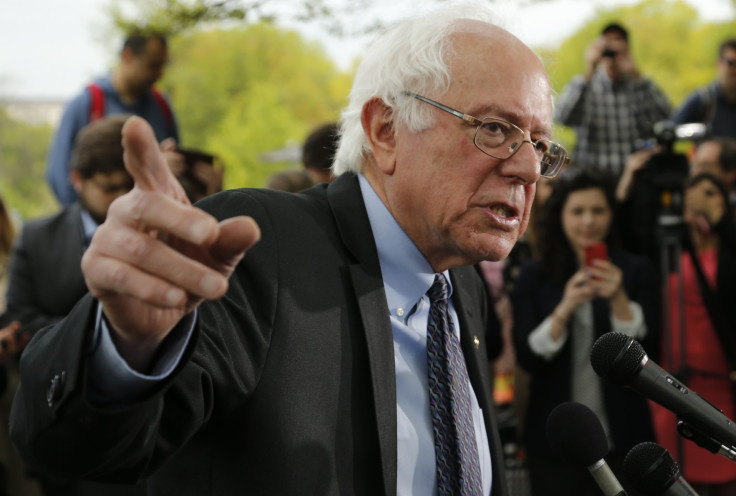Bernie Sanders Raises $1.5 Million In First Day Of 2016 Campaign

Vermont’s independent Sen. Bernie Sanders received 35,000 donations totaling $1.5 million for his campaign for the 2016 Democratic presidential nomination in the first 24 hours following his announcement early Thursday morning. Sanders is expected to get most of his money from grassroots supporters who share his feelings on big banks and what he calls out-of-control political spending.
While $1.5 million is nothing to sneeze at, Sanders is competing in what is expected to be the most expensive U.S. presidential campaign ever, totaling upwards of $4 billion by some estimates. Sanders openly admits he faces a steep uphill battle and doesn’t stand to raise nearly as much as Hillary Clinton, the only other Democrat who has declared a run for the presidency so far. It seems Sanders has no interest in conducting an ultra-expensive campaign at all.
Sanders has made a name for himself going after super PACs and the pools of wealthy donors that mainstream candidates draw their millions in donations from, saying, “It is vulgar to me that we’re having a war of billionaires,” and that he flat out would not support a super PAC that backed his bid for president (although some already have been founded).
“The real question is, Can any candidate in this country who represents working families, who is not a billionaire, who is not beholden to big corporations — in this day and age, can that candidate win an election?” Sanders told CNN on Thursday.
Sanders, a self-described socialist, wants to break up the too-big-to-fail banks that nearly plunged the U.S. into a depression seven years ago and fight climate change with heavily pro-environmental policies. Sanders’ base seems to be the left-wing contingent that made up the Occupy Wall Street movement of 2011. Sen. Dick Durbin, D-Ill., called Sanders the very definition of a liberal, but that might not be seen as a blessing among Democrats. The Democratic primary electorate is far more conservative than it seems. That helped Bill Clinton secure his nomination in 1992 and will likely help his wife win the nomination next year, according to the New York Times.
Sanders caucuses with the Democrats but often criticizes President Barack Obama, most recently regarding the Trans-Pacific Partnership initiative Obama wants to fast-track through Washington. Obama says the TPP, which breaks down some tariff barriers between the U.S. and Pacific countries, will boost American exports and create jobs. Sanders says it will see jobs move overseas and devalue American-made products.
© Copyright IBTimes 2025. All rights reserved.






















